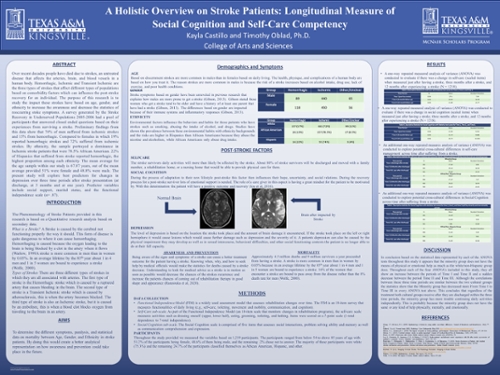Over recent decades people have died due to strokes, an untreated disease that affects the arteries, brain, and blood vessels in a human body. Hemorrhagic, Ischemic and Transient Ischemic are the three types of strokes that affect different types of populations based on comorbidity factors which can influence the post-stroke recovery for an individual. The purpose of this research is to study the impact these strokes have based on age, gender, and ethnicity to increase the awareness and decrease the statistics of reoccurring stoke symptoms. A survey generated by the Stroke Recovery in Underserved Populations 2005-2006 had a pool of participants that answered closed ended questions based on their experiences from surviving a stroke. Preliminary findings from this data show that 74% of men suffered from ischemic strokes and 15% from hemorrhagic. Compared to females in which 19% reported hemorrhagic strokes and 72% suffered from ischemic strokes. By ethnicity, the sample portrayed a dominance in Ischemic stroke patients that were 78.5% African American. 22% of Hispanics that suffered from stroke reported hemorrhagic, the highest proportion among each ethnicity. The mean average for the age sample within our study is 67.87 years, out of the mean average provided 51% were female and 48.8% were male. The present study will explore best predictors for changes in depression over three time periods after stroke presentation (at discharge, at 3 months and at one year). Predictor variables include social support, marital status, and the functional independence scale (α= .87).
Faculty Mentor: Dr. Timothy Oblad
Department of Psychology and Sociology


